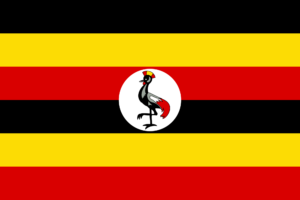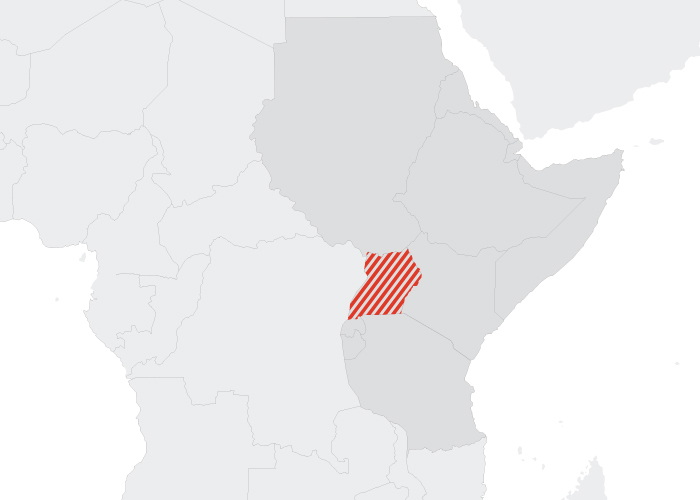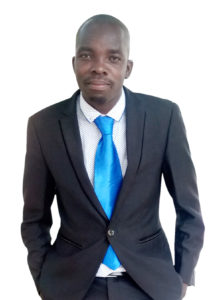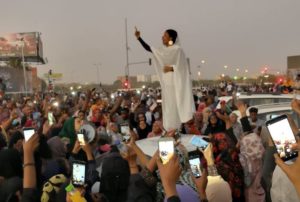On 1 May 2019, the Uganda Communications Commission issued a letter to 13 media houses (7 radio stations and 6 television stations) directing them to suspend 39 media workers – Producers, Head of News, and Head of Programmes who were in charge of broadcasts on 29 April 2019. The media houses in question are Akaboozi FM, BBS TV, Beat FM, Bukedde TV, Capital FM, CBS FM, Kingdom TV, NBS TV, NTV Uganda, Pearl FM, Salt TV, Sapienta FM, and Simba FM.
Visual artist Collin Sekajugo received the third annual Human Rights Award at the Human Rights Convention on 11 May 2019 in Kampala. Sekajugo was recognised for his brave creative work that has captured contemporary human rights concerns and illustrates the need for social change.
The Northern Uganda Media Club (NUMEC) has stated that Choice FM journalist Geoffrey Okot was punched in the neck by Aruu County MP Odongo Otto during a football match in June 2019. Journalist Willy Ochwoo claimed that Otto began hitting Okot in the back and neck. Okot has since filed a police report at Gulu central police station but has yet to release an official statement.
On 12 July 2019, journalist and political rights commentator Joseph Kabuleeta was arrested on allegations of offensive communication against the president, allegedly in connection to a social media rant in which he suggested that President Museveni was attempting to create a family political dynasty.
Bukedde Television journalist Godfrey Katongole was admitted to hospital in critical condition on 15 July after allegedly being assaulted by a mob, including other journalists, while covering a demonstration by women activists. In the process, Katongole lost his video camera, phones and bag.
A Ugandan student currently studying in the United States has petitioned Uganda’s High Court over President Yoweri Museveni’s decision to block him from viewing his updates on Twitter, arguing that it amounts to an infringement on his constitutionally protected freedoms. Hillary Innocent Taylor Seguya says the president blocked him on 30 July 2019 and argues this has infringed on his freedom of thought, conscience, and belief guaranteed under Article 29 of Uganda’s constitution. Seguya has also requested a permanent injunction that would stop two other high-ranking officials from blocking him on social media: government spokesperson Ofwono Opondo and senior police officer Asan Kasingye.
In August 2019, the Ugandan government denied damning allegations in a Wall Street Journal investigation that alleged technicians from the Chinese tech Giant Huawei were embedded with national cybersecurity forces to help intercept cell phone data to spy on political opponents.
On 18 September, a Ugandan Court dismissed a criminal libel and offensive communication case against Drone Media journalist Pidson Kareire. The charges related to an article which claimed that Middle East Consultants Limited, a group that arranges controversial domestic labour opportunities for Africans in the Middle East, was extorting money from job seekers. Two managers of the labour export firm in question have been accused of human trafficking.
Freedom of Peaceful Assembly
On 24 April 2019, HRD Annette Nana Namata was allegedly assaulted by a mob of police officers at the Naguru Police headquarters in Kampala where she planned to protest against police brutality and political bias. Aa a result of the assault, her uterus was removed in hospital to prevent bleeding – she has since announced plans to sue the officers responsible.
On 17 May 2019, 10 police officers raided an International Day Against Homophobia and Transphobia (IDAHOT) event at the offices of Chapter Four Uganda, an organisation which promotes the civil and political rights of marginalised and sexual minorities. The officers who demanded the cancellation of the event and locked office doors to ensure nobody could enter, stated that they were working under the authority of Minister of State for Ethics & Integrity Simon Lokodo, who has previously sent police to disrupt the proceedings of 6 other LGBT+ events. Attendees relocated remaining guests to the home of Ugandan LGBT+ activist Claire Byarugaba where they continued with their program and celebrations for the day.
On 27 June 2019, the National Coalition of Human Rights Defenders in Uganda held a press conference condemning the abuses experienced by human rights defenders in the country. The conference commented on issues such as increased surveillance and the stifling of press freedoms and restrictions to freedom of expression often on HRDs. The panel also discussed attacks on HRDs fighting for LGBT+ rights, as well as HRDs working on land rights in communities with extractive industries.




